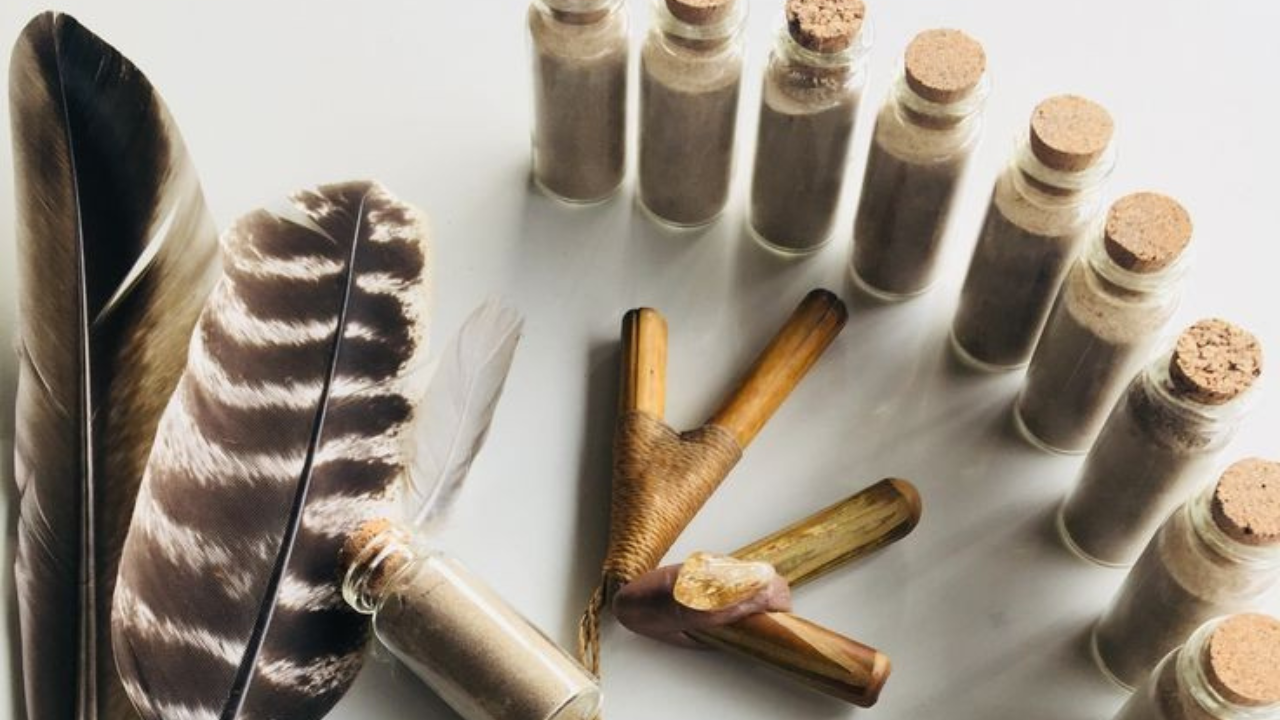From Ceremony to Real Life: Why Preparation and Integration Matter in Psychedelic Work
The world of psychedelic retreats has blossomed in recent years. As ancient plant medicines like psilocybin, ayahuasca, DMT, iboga, cacao, and others sacred ceremonies like kambo & bufo, become more popular, they’ve attracted people from every corner of the globe. Retreat leaders, facilitators, shamans, and attendees find themselves in spaces often infused with awe, anticipation, and sometimes, unfortunately, a touch of disillusionment. The promise of healing has expanded into a booming industry, and as the financial stakes increase, so too do ethical challenges, logistical hurdles, and the risk of exploitation.
As a psychedelic integration coach since 2017, with over 20 years of experience working with these medicines, I have seen firsthand how deeply transformational these experiences can be, and I have also seen the ways commercialization has shifted the landscape. There is a growing need for greater care, preparation, and integration support in the field, especially when the experience is no longer confined to sacred spaces within traditional, localized communities but is instead being offered globally to a broader audience.
This article speaks to both retreat leaders and attendees. For facilitators, I hope to provide insight into ethical practice, preparation, and integration methods. For participants, I want to offer practical guidance on ensuring their experiences are deeply supported, protected, and complete. Here’s how we can all work together to cultivate a safer, more meaningful psychedelic retreat culture.
For Retreat Leaders: Ethical Practice Beyond the Ceremony
1. Cultivate Transparency with Attendees
In the excitement of preparing for a retreat, details can sometimes be lost. Make sure all costs, expectations, and logistics are clear from the start. Attendees need to know about any additional fees for extended support or private sessions with shamans, the size of the group, the structure of ceremonies, and the type of support they’ll have. Full transparency is not just ethical; it fosters trust and sets clear boundaries, which is crucial for the deeply vulnerable work participants undertake in these retreats.
2. Preserve the Integrity of the Medicine
Many attendees may not realize the lengths some facilitators go to obtain pure medicines or the risks and sacrifices shamans make by traveling out of their home environments. The commercialization of plant medicine can sometimes lead to diluted or adulterated substances due to transportation laws or profit motives. By being upfront about your sourcing practices and the medicine’s authenticity, you create an environment where attendees can fully surrender to the experience, knowing they are in safe hands. If the medicine is modified due to practical constraints, be honest about it.
3. Prioritize the Quality of Connection Over Quantity of Participants
Large group ceremonies are increasingly common, but they often dilute the individualized experience. With more people in the space, each participant has less access to the shaman, healer, or facilitator. It also introduces diverse energies, which can be overwhelming and even harmful if not properly managed. Small, intimate groups allow for deeper connection, more personalized support, and a safer environment to process difficult emotions and experiences.
4. Integrate Comprehensive Preparation and Integration into Your Model
Often, participants leave retreats feeling reborn, only to find themselves struggling with the demands of integration once they return home. To prevent this, build preparation and integration support into your retreat offerings. The psychedelic journey resembles the lifecycle of a pregnancy: the preparation phase is akin to the nine months of gestation, and the experience itself is the labor. But just as a child needs nurturing beyond birth, so too does the individual require support beyond their retreat. Offer preparation resources, integration coaching, and aftercare sessions, and encourage participants to work with a coach or integration therapist.
NOTE* This is something I personally help retreat leaders with, connect with me directly to see how we can work together through email Ashley@ElementalGrowth.org or join our Network here.
For Attendees: How to Choose the Right Retreat and Prepare for a Transformative Journey
1. Research, Research, Research
In an industry where increasing money and demand can blur ethical boundaries, doing your due diligence is essential. Look for testimonials, speak to past participants if possible, and thoroughly examine the retreat’s website, FAQs, and listed practitioners. Transparency should be a priority; if you’re not finding clear answers to important questions, it might be a sign to keep looking.
2. Prepare Mentally, Physically, and Spiritually
Psychedelic journeys are not just about the experience itself but also about how well-prepared you are to receive and integrate the insights that arise. Set aside time to clarify your intentions, engage in a clean diet, incorporate grounding practices like meditation or journaling, and work with a coach (like myself) or therapist beforehand. Preparation enhances the likelihood that the journey will be both impactful and manageable. Think of it as building a strong foundation for a house: it’s essential for everything else to stand on solid ground.
3. Inquire About Integration Support and Aftercare
Many retreats emphasize the immediate psychedelic experience, but integration often falls by the wayside. Before booking, ask about the retreat’s aftercare practices. Do they offer integration sessions? Do they provide a list of trusted professionals you can work with post-retreat? Having someone you can speak to about your experience afterward is invaluable. Remember, the insights you gain during your retreat will only be as useful as your ability to incorporate them into your daily life.
4. Beware of “Quick Fix” Promises
Healing is not a one-time transaction; it is an ongoing journey. Retreats promising total transformation or life-changing results should be approached with caution. True healing can involve challenging insights, unexpected emotions, and realizations that may take months or years to fully understand. Go in with realistic expectations, embracing the work that healing requires.
Collaboration and Community: Reclaiming the Sacredness of Psychedelic Work
One of the most beautiful aspects of the psychedelic community is the spirit of collaboration. Retreat leaders, shamans, healers, and integration coaches have the unique opportunity to work together, creating an ecosystem of support that honors both the traditions of plant medicine and the needs of modern participants. I have personally been building a reliable network of skilled integration coaches, trusted shamans, and ethical suppliers, this enriches the community and strengthens each individual journey.
Shamans and traditional practitioners are often required to leave their home environments, sacrificing their familiar resources and rituals for broader work. While this expansion brings medicine to those in need, it sometimes compromises the integrity of the work. When possible, support shamans and practitioners in maintaining their own traditional practices, ensuring they feel respected and empowered to bring their whole selves to the retreat environment. Collaboration between experienced retreat leaders and indigenous shamans creates an invaluable bridge between ancient wisdom and modern practice.
A Final Word: We Are All Keepers of This Sacred Work
The call to work with psychedelics is a call to personal growth, community healing, and, ultimately, collective transformation. As the demand for retreats grows, it is up to both leaders and participants to honor these experiences by bringing transparency, ethics, and care to the process. Psychedelics are powerful tools, but they are not a cure-all; they are doorways that, when walked through with guidance and support, open into a lifelong journey of healing.
For those who feel alone in their integration process or struggle to make sense of their experiences, know that help is available. As an integration coach, I work to provide a safe, compassionate space where individuals can unpack, process, and incorporate the insights gained from their journeys. I am here as a support to retreat leaders who value thorough integration for their attendees, and I am here for each person who seeks guidance on their healing path.
The heart of psychedelic work lies in love, respect, and unity. Together, let’s ensure that these medicines are honored, their traditions are upheld, and the transformative power they hold is cherished and protected for generations to come.
Here are some valuable resources to support retreat leaders, facilitators, and attendees in creating and participating in ethical, safe, and impactful psychedelic experiences:
Books and Literature
- "How to Change Your Mind" by Michael Pollan - Provides an insightful overview of the history, science, and therapeutic potential of psychedelics.
- "The Psychedelic Explorer’s Guide: Safe, Therapeutic, and Sacred Journeys" by James Fadiman, Ph.D. - A practical guide on how to approach psychedelic journeys safely, including preparation and integration advice.
- "Sacred Knowledge: Psychedelics and Religious Experiences" by William A. Richards - Explores the connection between psychedelics and spirituality, with insights on creating meaningful experiences.
- "The Cosmic Serpent: DNA and the Origins of Knowledge" by Jeremy Narby - Explores shamanic wisdom and how indigenous practices relate to biological and spiritual insights.
- "The Fellowship of the River" by Joseph Tafur, M.D. - Details the intersection of traditional Amazonian plant medicine and Western healing practices.
- "Plant Intelligence and the Imaginal Realm" by Stephen Harrod Buhner - A deep dive into the intelligence of plant medicines and our relationship with the natural world.
Websites and Organizations
- MAPS (Multidisciplinary Association for Psychedelic Studies) -
https://maps.org
MAPS provides research, resources, and updates on the therapeutic use of psychedelics. - The Third Wave -
https://thethirdwave.co
Offers educational content, resources, and a directory for safe and ethical psychedelic experiences. - Psychedelic Support -
https://psychedelic.support
A network of licensed therapists, coaches, and integration practitioners for post-experience support. - The Fireside Project -
https://firesideproject.org
A nonprofit offering free, confidential support for people during or after psychedelic experiences. - Chacruna Institute for Psychedelic Plant Medicines -
https://chacruna.net
Provides resources on the cultural, social, and ethical issues surrounding psychedelics.
Podcasts and YouTube Channels
- Psychedelics Today - A podcast featuring discussions on psychedelics, mental health, and the ethics of psychedelic healing.
- Adventures Through the Mind with James W. Jesso - Covers topics on psychedelic culture, integration, and the psychological impacts of plant medicines.
- The Entheogenic Evolution Podcast - Focuses on the spiritual and therapeutic potentials of psychedelics.
- The Third Wave Podcast - Conversations with experts in the field, covering practical advice for psychedelics, integration, and spiritual practices.
Integration and Preparation Resources
- "Being True to You" -
https://www.beingtruetoyou.com
Specializes in preparation and integration coaching for addiction recovery and life transformation. - "Trip Sitters and Integration Coaches Directory" (The Third Wave) -
https://thethirdwave.co/directory
A vetted directory of integration coaches and trip sitters worldwide. - Integration Circle Facilitators (Psychedelic.Support) - Lists practitioners for group and individual integration sessions.
Courses and Training Programs
- Psychedelic Integration Coach Training (Being True to You) - A training program designed for coaches and therapists interested in psychedelic integration.
- MAPS MDMA Therapy Training Program - A comprehensive program training professionals to facilitate MDMA-assisted psychotherapy.
- Fluence Psychedelic Integration Training - Professional training in harm reduction and integration therapy.
- The Integrative Psychiatry Institute (IPI) - Psychedelic-Assisted Therapy Training - A program focusing on the therapeutic uses of psychedelics.
Indigenous Wisdom and Ethical Awareness
- "A Dose of Indigenous Reality: Protecting the Rights of Native Cultures" - An article by Chacruna Institute that raises awareness about ethical considerations when using indigenous medicines.
- Indigenous Medicine Conservation Fund - Supports the protection and preservation of plant medicines and their cultural traditions worldwide.
- Traditional Amazonian Medicine with Shipibo Healers - Temple of the Way of Light offers Shipibo-led ayahuasca retreats and educational content on indigenous practices.
Retreat Directories and Reviews
- Retreat Guru -
https://retreat.guru
Lists and reviews a variety of retreat centers, including psychedelic retreats. - AyaAdvisors -
https://ayaadvisors.org
A directory and review site for ayahuasca retreats worldwide, providing information and user reviews.
By staying informed and resourced, retreat leaders and participants can ensure that the transformational journeys offered by these sacred medicines are approached with respect, knowledge, and support.












